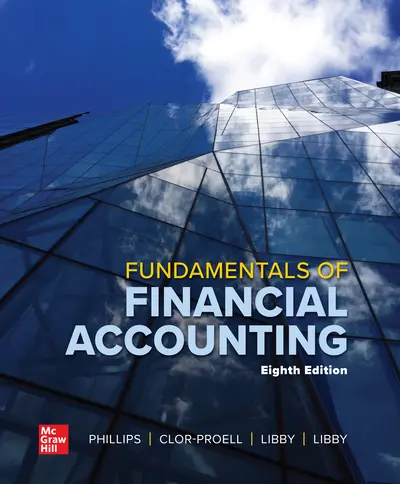Fred Phillips
Fred Phillips is a Master Teacher and professor of introductory accounting at the University of Saskatchewan. He previously taught at the University of Texas at Austin and the University of Manitoba and has an undergraduate accounting degree, a CPA, a CA (Canada), and a Ph.D. from the University of Texas at Austin. Fred was a 2011 3M National Teaching Fellow and has received the L. S. Rosen Outstanding Educator Award, the American Accounting Association’s Innovation in Auditing and Assurance Education Award, and the American Accounting Association’s Award for Outstanding Research in Accounting Education. He is also a recipient of the Edwards M.P.A.cc Teaching Effectiveness Award and, for the third time, the University of Saskatchewan Student Union’s Teaching Excellence Award. He has published research and instructional cases in Issues in Accounting Education and professional judgment studies in Journal of Accounting Research and Organizational Behavior and Human Decision Processes.
Shana Clor-Proell
Shana Clor-Proell is a professor at Texas Christian University, where she teaches introductory financial accounting and advanced accounting. She has also taught at Cornell University, the University of Wisconsin, the University of California–San Diego, and San Diego State University. Shana received her BS, MS, and PhD from Cornell University. She is a CPA (Wisconsin) and previously worked as an auditor for Arthur Andersen.
Shana’s research examines judgment and decision making in financial accounting contexts. Her work has been published in The Accounting Review, Journal of Accounting Research, and Contemporary Accounting Research, among others. Shana is a member of the Teaching, Learning and Curriculum (TLC), Financial Accounting and Reporting (FAR), and Accounting, Behavior and Organizations (ABO) and Diversity sections of the American Accounting Association. In her spare time, Shana enjoys long walks, meditation, and spending time with her family.
Robert Libby
Robert Libby is the David A. Thomas Professor of Accounting and Accounting Area Coordinator at Cornell University, where he teaches the introductory financial accounting course. He previously taught at the University of Illinois, Pennsylvania State University, the University of Texas at Austin, the University of Chicago, and the University of Michigan. He received his BS from Pennsylvania State University and his MAS and PhD from the University of Illinois; he also successfully completed the CPA exam (Illinois).
Bob was selected as the AAA Outstanding Educator in 2000 and received the AAA Outstanding Service Award in 2006 and the AAA Notable Contributions to the Literature Award in 1985 and 1996. He has received the Core Faculty Teaching Award multiple times at Cornell. Bob is a widely published author and researcher specializing in behavioral accounting. He has published numerous articles in The Accounting Review; Journal of Accounting Research; Accounting, Organizations, and Society; and other accounting journals. He has held a variety of offices including vice president, in the American Accounting Association, and he is a member of the American Institute of CPAs and the editorial boards of The Accounting Review and Accounting, Organizations, and Society.
Patricia Libby
Patricia Libby is chair of the department of accounting and an associate professor of accounting at Ithaca College, where she teaches the undergraduate financial accounting course. She previously taught graduate and undergraduate financial accounting at Eastern Michigan University and the University of Texas. Before entering academia, she was an auditor with Price Waterhouse (now PricewaterhouseCoopers) and a financial administrator at the University of Chicago. She received her B.S. from Pennsylvania State University, her M.B.A from DePaul University, and her Ph.D. from the University of Michigan; she also successfully completed the CPA exam (Illinois). Pat has published articles in The Accounting Review, Issues in Accounting Education, and The Michigan CPA and is also faculty advisor to Beta Alpha Psi and the Ithaca College Accounting Association.
